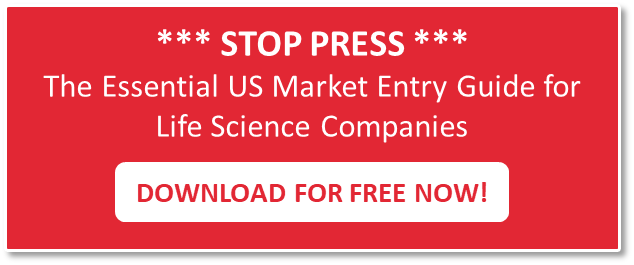Gain the insights you need to ensure full compliance: This article arms UK and EU healthcare companies with the critical knowledge and preparation strategies required to navigate the U.S. legal frameworks and address the complexities of FDA approval.
Navigating legal frameworks is a key challenge for any company seeking to enter a new market, especially in a highly regulated sector like healthcare. When it comes to the U.S. market, the legal and regulatory landscape can be particularly complex due to the multiple layers of legislation, guidelines, and regulations that govern the development, approval, and marketing of pharmaceuticals, medical devices, and other health-related products.
Key Takeaways
Read on to discover more about the critical aspects of the legal and regulatory hurdles faced by UK and EU companies and the strategic approach needed for successful navigation and entry into the U.S. healthcare market.
Complexity of U.S. Regulatory Environment
The U.S. healthcare regulatory framework is established by various federal agencies, with the FDA being the most prominent in terms of pharmaceuticals and medical devices. The FDA’s regulations are extensive and detailed, covering every aspect of product development, from pre-clinical testing to post-market surveillance. Furthermore, companies must also navigate laws concerning product import, establishment registration and labeling. In addition, there are other business focused legal concerns such as patents, trademarks, trade secrets, and other intellectual property concerns, which are governed by U.S. federal law and administered by agencies such as the United States Patent and Trademark Office (USPTO).
“Understanding the U.S. legal framework, particularly the FDA’s rigorous review process, is crucial for market success. Our firm not only helps translate these regulations into actionable steps but also assists in embedding the necessary quality system processes from the get-go.”

Mark Swanson
Partner, QRx Partners
Federal vs. State Laws
The U.S. legal system has both federal and state laws, and they can sometimes intersect or add requirements. While the FDA operates at the federal level, state laws can also impact healthcare companies, particularly in areas such as distribution practices, pricing, and insurance coverage. Understanding the interplay between these different jurisdictions is crucial for compliance.
Need for Legal and Regulatory Expertise
Given the complexity of U.S. regulations, companies from the UK and Europe often find that they need to hire both legal and regulatory consultants who are experienced in FDA law and business practice. These consultants can guide companies through the FDA’s review processes, help interpret the FDA’s feedback, assist in the preparation and submission of regulatory documents, and provide advice on compliance with U.S. regulations and standards.
Compliance with Specific Regulations
Several specific regulations must be navigated, including but not limited to:
Challenges with Changing Regulations
Regulatory frameworks are not static, and the FDA frequently updates its guidelines and policies. Keeping up with these changes is a continuous challenge that requires attention and flexibility. For example, the regulatory landscape for digital health technologies is rapidly evolving, and companies specializing in this area must be particularly vigilant about staying current with the latest guidelines.
“The FDA’s regulatory framework is constantly evolving, especially with the rise of digital health technologies. We guide our clients through these changes with proactive strategies to mitigate risk and capitalize on new opportunities.”

Mark Swanson
Partner, QRx Partners
Consequences of Non-Compliance
Failure to comply with U.S. laws and regulations can result in severe penalties, including fines, injunctions, product seizures, and criminal charges. For companies in the healthcare sector, non-compliance can also lead to reputational damage, loss of consumer trust, and significant delays in product approval or market access.
Conclusion
In summary, navigating the legal frameworks in the U.S. is a complex task that involves understanding a broad array of regulations and standards, staying up-to-date with changes, and managing the risk of non-compliance. For UK and European companies, the assistance of U.S.-based legal and regulatory consultants is often indispensable in achieving successful market entry and operation within the U.S. healthcare sector.
Other Useful Resources
Disclaimer: The information provided in this article is for general informational purposes only and should not be construed as professional advice. Readers should not rely on any information contained herein as a substitute for professional guidance and should seek independent expert assistance when making decisions related to transfer pricing or US expansion.

